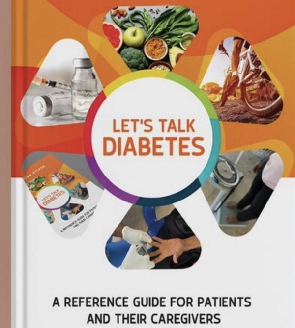The topography of Ghana’s health system is one typified as pluralistic. Pluralistic in the sense that there is a longstanding interplay of both traditional and scientific medicine.
Ghana’s healing traditions vacillates between patronizing the medical services of street vendors, love for spiritual healers, visitation of churches and prayer camps, reaching out to mallams for qur’anic potions and visiting hospitals in no particular order. Many dynamics regardless of one’s education influence the choice of treatment.
Unlike the traditional system of disease management, the scientific medicine paradigm gained currency in the 1840s when colonial administrators required medical services.
Professor Patrick. A. Twumasi (Ghana’s first qualified medical sociologist) reports that although the first British colonial nursing sister arrived sometime in 1899, it was inconceivable to see women render medical services.
Health issues were at the time predominantly dictated by environmental factors.
This gave prominence to the study of tropical medicine and diseases including but not limited to malaria, sleeping sickness, tuberculosis, worm infestations, leprosy, Yaws and the like. Upon gaining independence in 1957, Ghana assumed responsibility for the colonial health infrastructure which primarily focused on curative care and one with a public health focus to address major public outbreaks such as smallpox and yellow fever.
At present, Ghana subsumed in Africa is saddled with what is now touted as the Double burden of disease (BOD). BOD is simply the coexistence of communicable diseases (malaria) and chronic non-communicable diseases (Diabetes, Hypertension).
Let’s Talk Diabetes
Diabetes is as old as man contrary to the narrative that it is a recent medical phenomenon.
In 1923, the very year the Korle Bu Hospital was formally opened, two Canadian researchers successfully managed a diabetic dog. They were later awarded the Nobel Prize in Physiology for this pioneering feat which changed the course human disease history.
In the third edition of Health and Disease A Laymans Guide to Good Health (2010) Prof. S.K. Owusu dedicated nine (9) pages to Diabetes Mellitus – The Sugar Disease. Although credited as one of the pre-eminent authorities in the study of Diabetes in Ghana, Prof. Owusu intimates that it was Prof. Silas R.A. Dodu who for first attempted chronicling the incidence of the disease in the whole of West Africa.
Prof. Dodu had in 1957 submitted a dissertation to the University of Sheffield titled: “Diabetes and Haemosiderosis in the Gold Coast”. At the time, the only recorded case of diabetes was one of a young man who had been successfully managed of diabeteic coma sometime In 1931 in then Gold Coast. The paucity of information of this disease titillated the interested of young Dodu who sought to undertake its study and association with Haemosiderosis.
The birth of Let’s talk Diabetes A reference guide for patients and their caregivers represents a climacteric epoch in the history of medicine in Ghana. In publishing this seminal work, Dr. Yacoba Atiase ensures gender equity in the global knowledge production in a sphere whose antecedents have been largely dominated by formidable men. Yacoba adds to the body of scholarship in the mould of Prof. Ama de-Graft Aikins who worked on the Social Representations of Diabetes in Ghana, reconstructing self, society and culture.
The book is structured in ten coherent Chapters addressing the foundational knowledge in Diabetes, modalities of treatments, use of diagnostics in diabetes, diabetes in Pregnancy, Children, and frequently asked questions or the myth breaking section. Yacoba adeptly weaves through these ten chapters with recourse to the essential elements for effective science communication which addresses the who(audience), the whys (awareness and knowledge), the what (content and context) and the how (style, dialogue, engagement, language, appeal).
Aimed at educating patients and the public on the essentials of living well with diabetes, Yacoba departs from the formulaic textbook approach by speaking convincingly to the reader. She reinforces Albert Einstein’s maxim of scientific communication that you do not understand a concept until you can explicate it to a child. This she further amplified at the book launch where a young lady read almost a chapter that speaks to the situation of children in Diabetes.
The functional differentiator of this work lies at the end of every chapter where PowerPoints enumerated as Highlights summarize the critical information.
Of the many epidemics facing the world today, Diabetes is classified as one of the most debilitating especially in low- and middle-income countries.
Extrapolation of the current reality suggest that the prevalence will likely double by end 2035. Narh et al in their Trends in hospitalization of patients with diabetes mellitus in Ghana from 2012 to 2017 with predictions to 2032 reported that women and older patients were the most at risk groups aside the low levels of education being a contributory factor.
Yacoba’s work is timely as it addresses the gaps in the patient education.
Recommendation
Let’s Talk Diabetes is a portable tome for everyone not only people living with Diabetes. It serves as a useful resource which Patient support groups in Ghana and abroad could be use for their personal education. Health interest groups and government could get ahead of Diabetes by investing in making this book a national guide for all patients with Diabetes.
A further step could be taken to translate it into local languages and a mobile app which offers the opportunity for constant updates in this era of technological advancement.
Churches, mosques and other religious sects should consider fashioning talks using this seminal book as reference material. Organizations should also consider making copies available for all their employees as a productive worker is one who has command of his health.
And finally, as a labour of love, include this fantastic book in all your gift bouquets for all your friends and loved ones.
Opinions of Wednesday, 1 March 2023
Columnist: Reginald Sekyi-Brown















